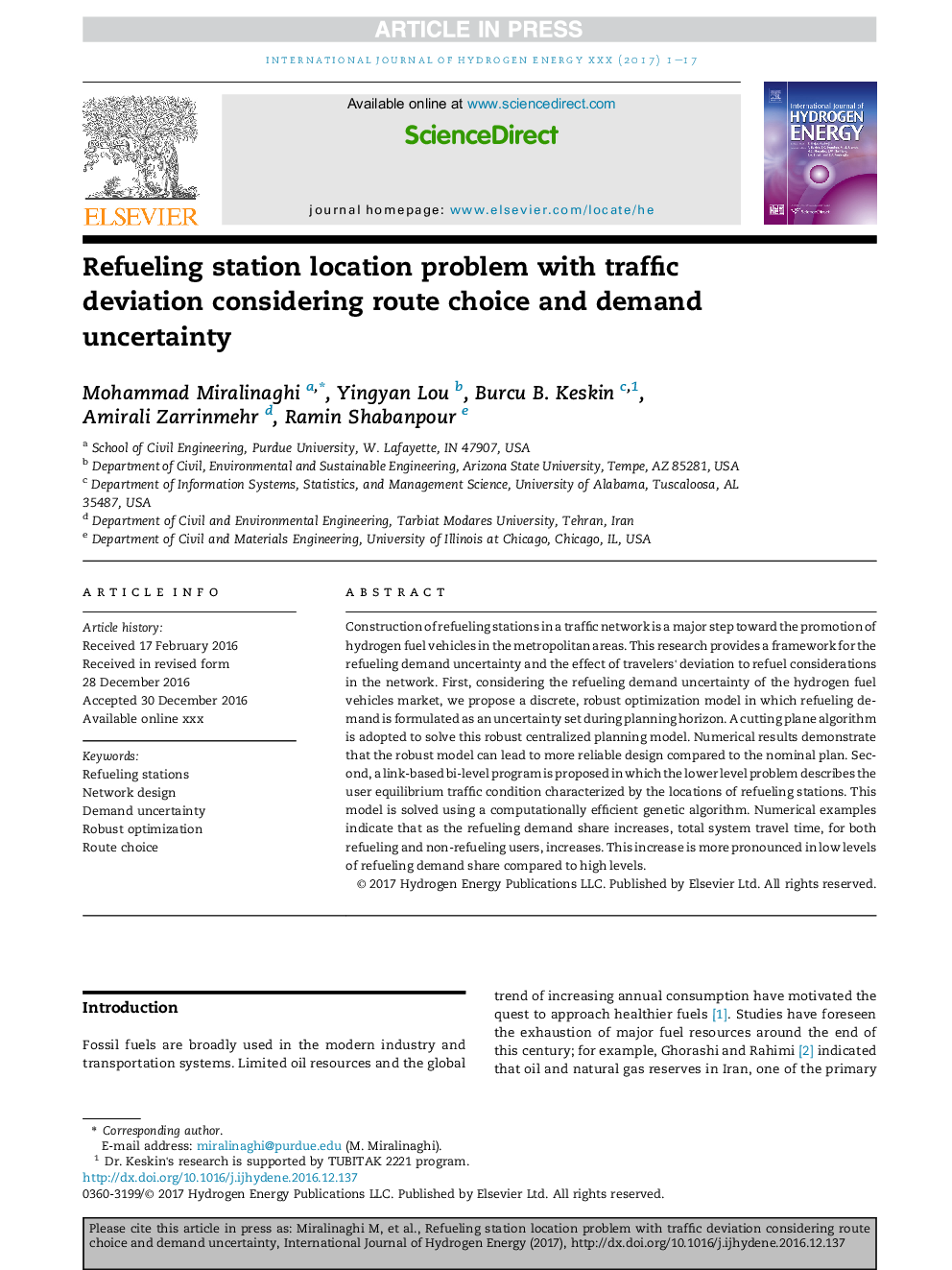| Article ID | Journal | Published Year | Pages | File Type |
|---|---|---|---|---|
| 5148542 | International Journal of Hydrogen Energy | 2017 | 17 Pages |
Abstract
Construction of refueling stations in a traffic network is a major step toward the promotion of hydrogen fuel vehicles in the metropolitan areas. This research provides a framework for the refueling demand uncertainty and the effect of travelers' deviation to refuel considerations in the network. First, considering the refueling demand uncertainty of the hydrogen fuel vehicles market, we propose a discrete, robust optimization model in which refueling demand is formulated as an uncertainty set during planning horizon. A cutting plane algorithm is adopted to solve this robust centralized planning model. Numerical results demonstrate that the robust model can lead to more reliable design compared to the nominal plan. Second, a link-based bi-level program is proposed in which the lower level problem describes the user equilibrium traffic condition characterized by the locations of refueling stations. This model is solved using a computationally efficient genetic algorithm. Numerical examples indicate that as the refueling demand share increases, total system travel time, for both refueling and non-refueling users, increases. This increase is more pronounced in low levels of refueling demand share compared to high levels.
Related Topics
Physical Sciences and Engineering
Chemistry
Electrochemistry
Authors
Mohammad Miralinaghi, Yingyan Lou, Burcu B. Keskin, Amirali Zarrinmehr, Ramin Shabanpour,
